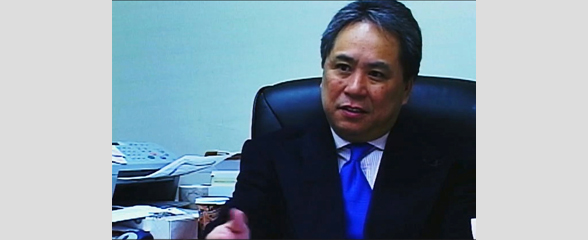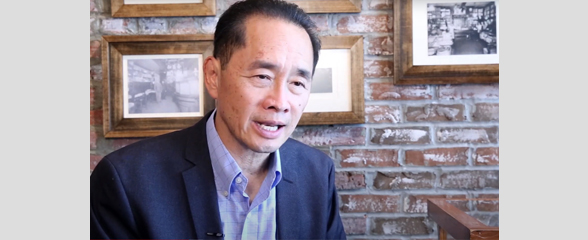Chinese American journalists

2014.036.013 Oral History Interview with Tony Wong April 1, 2004
Tony Wong, General Manager at Sino Television, was born and raised in Hong Kong. He immigrated to the United States to study broadcasting at both the undergraduate and graduate level. Tony recalls his initial struggles as a student coming from a poor economic background and how he eventually moved to New York City, receiving a job offer at NBC right after graduation. During his time at NBC and in Sino TV as a part-timer, Tony would learn a myriad of skills including production, directing, and programming. Tony would eventually move on to work at different companies before returning to Sino TV as a full-time employee. He would describe Sino TV’s area of operation, and programming variety, and emphasize their stance on being politically and culturally neutral regarding the different Chinese communities and political views. Later in the interview, Tony shares his thoughts on Chinese unity and stereotypical “passiveness†and observes a change in this following the 9/11 attacks. Tony notes that following the 9/11 attack, the Chinese community banded together to help local recovery and rescue operations and fundraised 1.5 million dollars for the World Trade Center Fund and the American Red Cross. He also highlights other efforts to create programs that promoted Chinese activism for not only disasters but also for political purposes.

2018.034.002 Oral History Interview with Ti-Hua Chang
In this oral history, MOCA interviews Ti-Hua Chang, a Chinese American television news reporter who was the first journalist to cover the story of the Golden Venture when it ran aground off Rockaway Beach, Queens, on June 6, 1993. He discusses how he was first informed about the Golden Venture and the process of reporting on the event. Chang recounts how his news station had brought in an anti-immigration lawyer to speak on the story, and how he felt compelled to speak up to counter the lawyer’s hate rhetoric, launching into a speech about Chinese Exclusion and anti-Asian racism in the United States. His coverage continued during the detainments. He reveals that the ten individuals who drowned during the Golden Venture voyage were kept in the New York City morgue for months because no one wanted to bury them, and they were eventually sent to a pauper’s grave, where they were buried in stacks of five, which according to Chinese superstition, meant that their souls would never be at peace. When Thomas Sung, of the Abacus Federal Savings Bank, heard about this, he donated money to have the drowned individuals buried in separate plots. Chang speaks about the racist attitudes towards Chinese people in the United States and the issue of organized crime in the Chinese community. He believes that the Golden Venture passengers were unfairly detained to be made examples by the United States government to discourage Chinese undocumented immigration. He believes that the United States owes reparations to Chinese people, who built the Transcontinental Railroad and were integral to the development of this nation, and yet were met with Chinese Exclusion. Finally, he stresses the importance of having diverse newsrooms and journalists who would have the cultural competency to cover diverse stories.